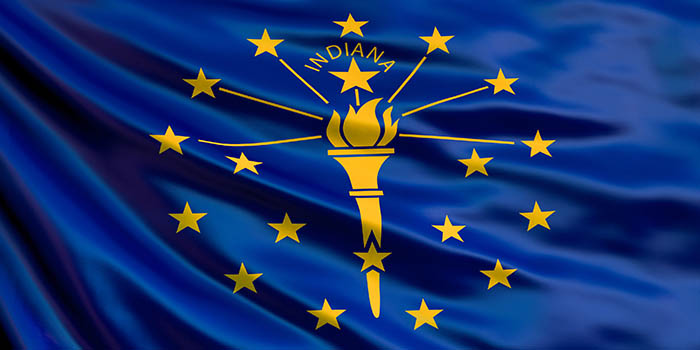- Casino
- By State
- Alabama
- Alaska
- Arizona
- Arkansas
- California
- Colorado
- Connecticut
- Delaware
- Georgia
- Florida
- Hawaii
- Idaho
- Illinois
- Indiana
- Iowa
- Kansas
- Kentucky
- Louisiana
- Maine
- Massachusetts
- Maryland
- Michigan
- Minnesota
- Mississippi
- Missouri
- Montana
- Nebraska
- Nevada
- New Hampshire
- New Jersey
- New Mexico
- New York
- North Carolina
- North Dakota
- Ohio
- Oklahoma
- Oregon
- Pennsylvania
- Rhode Island
- South Carolina
- South Dakota
- Tennessee
- Texas
- Utah
- Vermont
- Virginia
- Washington
- West Virginia
- Wisconsin
- Wyoming
- By State
- Slots
- Poker
- Sports
- Esports
Fact-checked by Angel Hristov
New Brazilian Ordinance Raises Concerns over Retroactive Taxation for Operators
The nation’s newly released regulatory update has caused significant unrest among gambling companies due to its potentially damaging implications

The recently published Ordinance RFB/SPA/MF No. 3/2025 has sparked ongoing debates about its implications for Brazil’s gambling sector. The ordinance establishes the Intersecretarial Working Group (GTI-Bets), which will monitor tax compliance, oversee authorized operators, and investigate potential illegal activities. However, it also contains text implying the possibility of retroactive taxes for Brazil’s licensed operators.
Retroactive Taxes Could Undermine Operator Trust
The Finance Ministry’s GTI-Bets initiative aims to foster collaboration with the Federal Revenue Service to enhance oversight over the online betting industry. In particular, it will ensure operators remain compliant with tax and regulatory requirements by introducing measures to detect and correct irregularities. These goals align with Brazil’s goal to strike a balance between stakeholder interests and consumer protections.
However, Article 1, Item II of the ordinance has drawn scrutiny for its mandate to explore a compliance program for past tax obligations. The legislation mentions “tax obligations in relation to a period prior to authorization,” raising questions among operators. Speaking for SBCNoticias, Filipe Rodrigues, attorney and CEO of Jogo Positivo, a company focused on promoting positive gaming, discussed the controversial text.
Taxes can only be collected when expressly provided for by law. Retroactive taxation would not only be arbitrary but also a violation of taxpayers’ rights.
Filipe Rodrigues, attorney and Jogo Positivo CEO
Rodrigues highlighted that from 2018 until 2023, there was no clear legal framework regarding the tax obligations of Brazilian gambling operators. He warned that such a retroactive collection attempt could create “fiscal surprise” and systemic risks. Such an unpopular move could also significantly damage operator trust in the burgeoning Brazilian regulated marketing, undoing much of the nation’s progress.
Stakeholders Call for Clear Dialogue
This matter drew attention to a 2024 ruling by Brazil’s Supreme Federal Court (STF), which allowed retroactive tax collection in cases involving the Social Contribution on Net Income (CSLL). On that occasion, the court maintained the validity of retroactive payments dating back to 2007 despite objections that such a decision violated the principles of claim preclusion.
According to the new ordinance, GTI-Bets must file bimonthly progress reports and a conclusive report within six months. These reports will provide a definitive answer as to whether retroactive tax obligations will be proposed. However, the substantial legal and operational implications for operators mean that many companies are pushing for an immediate clarification.
Retroactive taxation in this context would violate constitutional principles, particularly the prohibition against fiscal surprise.
Filipe Rodrigues, attorney and Jogo Positivo CEO
Industry stakeholders insist on transparency and dialogue to ensure that regulatory updates adhere to established legal frameworks and do not jeopardize the sector’s stability in such a pivotal time for Brazil’s regulated gambling industry. The government has so far demonstrated a measured and balanced approach to regulation, so it should hopefully resolve this matter with due haste.
Related Topics:
Deyan is an experienced writer, analyst, and seeker of forbidden lore. He has approximate knowledge about many things, which he is always willing to apply when researching and preparing his articles. With a degree in Copy-editing and Proofreading, Deyan is able to ensure that his work writing for Gambling News is always up to scratch.
Previous Article

Industry
January 17, 2025
Asia Gaming Brief to Host Its Seventh ASEAN Gaming Summit

Must Read
Industry
April 11, 2025
Online Casino Legalization Fails in Two US States
More Articles








Industry
April 15, 2025
Indiana Bill Seeking to End Lottery Couriers Advances

Industry
April 15, 2025
Brazil Weighs Stricter Rules on Gambling Advertising

Industry
April 14, 2025
Thailand Postpones Casino Bill Hearing, Ex-PM Unfazed

Industry
April 11, 2025
Singapore Renews Marina Bay Sands’ Casino License

Industry
April 11, 2025
European Commission Says Belgium Did Not Favor Ladbrokes

Industry
April 11, 2025
Online Casino Legalization Fails in Two US States

Business
April 11, 2025
NOVOMATIC Secures Supplier’s License in the UAE









